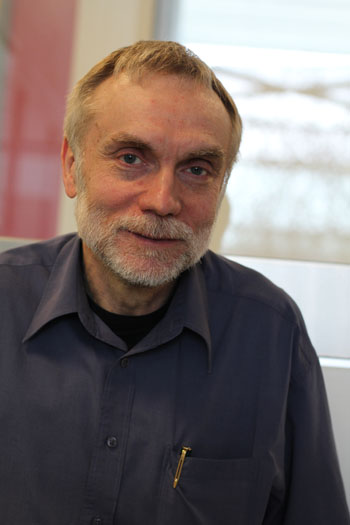Being part of a movement

Dr. Janusz Rak, Senior Scientist at RI-MUHC in the Child Health and Human Development Program, tells us about his research.
The movement
Dr. Janusz Rak believes that cancers in children do not act as independent collections of cancer cells but as ‘societies of cells’. One language that cancer cells use to communicate consists of tiny membrane bubbles called exosomes or extracellular vesicles.
“There is an intense interest to understand what exosomes do and what their roles in brain tumors are. It is an area that has been of great interest for the last decade, and we are part of this movement.
We want to know what happens within each and every cancer cell in terms of the molecular machinery. That is, what’s wrong with these cells? Why do they keep dividing? We are interested in these questions and would like to further them by asking how the tumor cells interact with each other.”
The Goal
“We are trying to understand the mechanisms and approaches to disrupt or alter tumor cell communication. There are very few examples of anti-cancer agents that have been designed to disrupt tumor cell communication and we are very interested in this concept, because I think this is a completely unexplored area of therapeutic intervention.
How can we modulate or cure or treat the cancer by disrupting the exosomes? For instance, since exosomes interact with certain cancer cells, can we load them up with anticancer drugs to deliver them to those cells? We don’t know how deep this goes, but this is one of the mechanisms that exist, and there’s no drug out there yet that can disrupt exosomes.”
The Timeline
Dr. Rak says that in a short time the principles of exosome biology have already resulted in diagnostic tests in cancer and exosome based therapeutics are in advanced stages of preclinical development, with some clinical trials already ongoing.
“Any biological discovery breeds new opportunities. Exosomes in cancer have not really been explored, it is a field that is just emerging meaning there are so many opportunities…”
The Support
Dr. Rak’s work is supported by a number of donors, notably the Cole Foundation, the Dara Meaghan Korne Fund and the Edward and Phyllis Pascal Foundation.


